Alfabetización informacional en la era digital: un panorama de la investigación actua
| Issue | Vol. 9 Núm. 1 (2025): Ciencia y Educación |
| DOI | |
| Publicado | abr. 24, 2025 |
|
Estadísticas |
Resumen
El presente estudio de revisión bibliográfica investiga el desarrollo y relevancia de la alfabetización informacional, evaluando su conexión con las habilidades digitales. La importancia de realizar este análisis radica en la comprensión del efecto de dichas habilidades en el proceso de aprendizaje, especialmente en un contexto de creciente disparidad en el acceso a la tecnología y los desafíos socioeconómicos presentes. Para llevar a cabo la indagación, se realizó una exploración de la literatura científica publicada en el periodo comprendido entre 2020 y 2024, utilizando bases de datos académicas reconocidas como ERIC, Semantic Scholar y JSTOR. Los estudios analizados abordan aspectos vinculados a la alfabetización informacional y su relación con las competencias en entornos digitales en diversos contextos educativos. Los resultados contrastados indican que la alfabetización informacional y las habilidades para operar en entornos digitales están estrechamente vinculadas. Sin embargo, actualmente se presentan obstáculos importantes como la brecha digital y la carencia de capacitación docente en Tecnologías de la Información y la Comunicación (TIC). Este escrito señala la imperiosa necesidad de establecer políticas educativas que fomenten la equidad en el acceso a la tecnología y fomenten competencias críticas y éticas para alcanzar una eficaz alfabetización en información en la era digital.
Arslantas, T. K., & Gul, A. (2022a). Digital literacy skills of university students with visual impairment: A mixed-methods analysis. Education and Information Technologies, 27(4), 5605–5625. https://doi.org/10.1007/s10639-021-10860-1
Audrin, C., & Audrin, B. (2022). Key factors in digital literacy in learning and education: a systematic literature review using text mining. Education and Information Technologies, 27(6), 7395–7419. https://doi.org/10.1007/s10639-021-10832-5
Balbontín-Alvarado, R., Rivas-Morales, C., Wu, D., & Davis, R. (2024). The role of creativity and innovation for teaching in disruptive times: the case of Chile. In N. Brown, A. Ince, & K. Ramlackhan (Eds.), Creativity in Education (pp. 83–112). UCL Press. http://www.jstor.org/stable/jj.5699289.12
Bell, D. L. (2021). A qualitative investigation of the digital literacy practices of doctoral students. Journal of Information Literacy, 15(3). https://doi.org/10.11645/15.3.2829
Bergner, N., Köster, H., Magenheim, J., Müller, K., Romeike, R., Schroeder, U., Schulte, C., & Chabay, I. (2023). Goals for Early Childhood Educators and Primary School Teachers. In “Haus der kleinen Forscher” Foundation (Ed.), Early Computer Science Education – Goals and Success Criteria for Pre-Primary and Primary Education (1st ed., pp. 158–198). Verlag Barbara Budrich. https://doi.org/10.2307/jj.1791918.13
Boyle, A. E., & Benner, A. D. (2020). Understanding Parental Educational Involvement: The Roles of Parental General and Child-Specific School Readiness Beliefs. Merrill-Palmer Quarterly, 66(2), 199–222. https://doi.org/10.13110/merrpalmquar1982.66.2.0199
Buckingham, D. (2020). Epilogue: Rethinking Digital Literacy--Media Education in the Age of Digital Capitalism. Digital Education Review, 37, 230–239. https://files.eric.ed.gov/fulltext/EJ1301648.pdf
Burke, R. (2024). Reimagining Language in Higher Education: Engaging with the Linguistic Experiences of Students with Refugee and Asylum Seeker Backgrounds. In C. Cantat, I. M. Cook, & P. K. Rajaram (Eds.), Opening Up the University (NED-New edition, 1, Vol. 5, pp. 220–239). Berghahn Books. https://doi.org/10.2307/jj.14962379.19
Campos, D. G., & Scherer, R. (2024). Digital gender gaps in Students’ knowledge, attitudes and skills: an integrative data analysis across 32 Countries. Education and Information Technologies, 29(1), 655–693. https://doi.org/10.1007/s10639-023-12272-9
Değirmenci Gündoğmuş, H. (2024). Pre-service primary school teachers’ metaphor perceptions of digital literacy. African Educational Research Journal, 12(2), 89–93. https://doi.org/10.30918/AERJ.122.24.021
Dúo-Terrón, P., Moreno-Guerrero, A.-J., & Marín-Marín, J.-A. (2022). ICT Motivation in Sixth-Grade Students in Pandemic Times—The Influence of Gender and Age. Education Sciences, 12(3), 183. https://doi.org/10.3390/educsci12030183
Esenowo, I. P. (2024). Digital Literacy for Refugees in the United Kingdom. In C. Cantat, I. M. Cook, & P. K. Rajaram (Eds.), Opening Up the University (NED-New edition, 1, Vol. 5, pp. 156–163). Berghahn Books. https://doi.org/10.2307/jj.14962379.14
Fernández-Batanero, J. M., Cabero-Almenara, J., Román-Graván, P., & Palacios-Rodríguez, A. (2022). Knowledge of university teachers on the use of digital resources to assist people with disabilities. The case of Spain. Education and Information Technologies, 27(7), 9015–9029. https://doi.org/10.1007/s10639-022-10965-1
Foundation, “Haus der kleinen Forscher,” Bergner, N., Köster, H., Magenheim, J., Müller, K., Romeike, R., Schroeder, U., Schulte, C., & Chabay, I. (2023). Overview of the “Haus der kleinen Forscher” Foundation. In “Haus der kleinen Forscher” Foundation (Ed.), Early Computer Science Education – Goals and Success Criteria for Pre-Primary and Primary Education (1st ed., pp. 20–31). Verlag Barbara Budrich. https://doi.org/10.2307/jj.1791918.6
George Reyes, C. E., & Avello-Martínez, R. (2021). Alfabetización digital en la educación. Revisión sistemática de la producción científica en Scopus. Revista de Educación a Distancia (RED), 21(66). https://doi.org/10.6018/red.444751
González-Sanmamed, M., Estévez, I., Souto-Seijo, A., & Muñoz-Carril, P.-C. (2020). Digital learning ecologies and professional development of university professors. Comunicar, 28(62), 9–18. https://doi.org/10.3916/C62-2020-01
Imperio, A., & Seitz, S. (2023). Positioning of Children in Research on Assessment Practices in Primary School. In S. Seitz, P. Auer, & R. Bellacicco (Eds.), International Perspectives on Inclusive Education (1st ed., pp. 47–66). Verlag Barbara Budrich. https://doi.org/10.2307/jj.2430381.6
Ismael, J., Lazzaro, A. E., & Ishihara, B. (2021). The Experiences and Working Conditions of Caring Educators. The Radical Teacher, 119, 30–40. https://www.jstor.org/stable/48694897
Kerneža, M., & Kordigel Aberšek, M. (2022). Online reading in digital learning environments for primary school students. Problems of Education in the 21st Century, 80(6), 836–850. https://doi.org/10.33225/pec/22.80.836
Kögler, K., Egloffstein, M., & Schönberger, B. (2020). Openness in MOOCs for Training and Professional Development–An Exploration of Entry and Participation Barriers. In E. Wuttke, J. Seifried, & H. Niegemann (Eds.), Vocational Education and Training in the Age of Digitization (1st ed., pp. 205–224). Verlag Barbara Budrich. https://doi.org/10.2307/j.ctv18dvv1c.13
Lin, R., Yang, J., Jiang, F., & Li, J. (2023). Does teacher’s data literacy and digital teaching competence influence empowering students in the classroom? Evidence from China. Education and Information Technologies, 28(3), 2845–2867. https://doi.org/10.1007/s10639-022-11274-3
McClellan Brooks, S. (2024). Centerless? Making Sense of Disruptions in the Graduate Writing Center. The Writing Center Journal, 42(1), 85–106. https://www.jstor.org/stable/27304236
Meylani, R., & Bitter, G. G. (2023). Unlocking Success in the App-Generation: Empowering Higher Achieving Students in the Digital Age. International Conference on Studies in Education and Social Studies (ICSES), 226–251. https://files.eric.ed.gov/fulltext/ED652323.pdf
Morduchowicz, R. (2020). Ciudadanía digital: curriculum para la formación docente. https://unesdoc.unesco.org/ark:/48223/pf0000378120.locale=es
Moreno-Guerrero, A. J., Miaja-Chippirraz, N., Bueno-Pedrero, A., & Borrego-Otero, L. (2020). El área de información y alfabetización informacional de la competencia digital docente. Revista Electrónica Educare, 24(3), 1–16. https://doi.org/10.15359/ree.24-3.25
Naci Çoklar, A., & Tatli, A. (2021). Examining the Digital Nativity Levels of Digital Generations: From Generation X to Generation Z. Shanlax International Journal of Education, 9(4), 433–434. https://doi.org/10.34293/education.v9i4.4224
Nguyen, T. Q., Ngoc, P. T. A., Phuong, H. A., Duy, D. P. T., Hiep, P. C., McClelland, R., & Noroozi, O. (2024). Digital competence of Vietnamese citizens: An application of digcomp framework and the role of individual factors. Education and Information Technologies. https://doi.org/10.1007/s10639-024-12585-3
Nikou, S., & Aavakare, M. (2021). An assessment of the interplay between literacy and digital Technology in Higher Education. Education and Information Technologies, 26(4), 3893–3915. https://doi.org/10.1007/s10639-021-10451-0
Ogegbo, A. A., Tijani, F. Y., Adegoke, O., Ifekoya, K., & Namusoke, J. (2021). Assessment of Female University Students’ Digital Competence: Potential Implications for Higher Education in Africa. International Journal of Higher Education, 11(3), 98. https://doi.org/10.5430/ijhe.v11n3p98
O’keeffe, C. (2020). Investigating adult skills assessment in Esonline: A Digital Ethnography. In B. Grummell & F. Finnegan (Eds.), Doing Critical and Creative Research in Adult Education (pp. 153–163). Brill. http://www.jstor.org/stable/10.1163/j.ctv2gjwzkt.19
Özdemir, K. (2023). Student opinions on the place of digital media in history education. African Educational Research Journal, 11(3), 530–540. https://doi.org/10.30918/AERJ.113.23.087
Peiffer, H., Schmidt, I., Ellwart, T., & Ulfert, A.-S. (2020). Digital Competences in the Workplace: Theory, Terminology, and Training. In E. Wuttke, J. Seifried, & H. Niegemann (Eds.), Vocational Education and Training in the Age of Digitization (1st ed., pp. 157–182). Verlag Barbara Budrich. https://doi.org/10.2307/j.ctv18dvv1c.11
Reddy, P., Chaudhary, K., Sharma, B., & Chand, D. (2021). Contextualized game-based intervention for digital literacy for the Pacific Islands. Education and Information Technologies, 26(5), 5535–5562. https://doi.org/10.1007/s10639-021-10534-y
Rojas-Estrada, E.-G., Aguaded, I., & García-Ruiz, R. (2024). Media and Information Literacy in the Prescribed Curriculum: A Systematic Review on its Integration. Education and Information Technologies, 29(8), 9445–9472. https://doi.org/10.1007/s10639-023-12154-0
Saarinen, A. I. L., Lipsanen, J., Hintsanen, M., Huotilainen, M., & Keltikangas-Järvinen, L. (2021). The Use of Digital Technologies at School and Cognitive Learning Outcomes: A Population-Based Study in Finland. International Journal of Educational Psychology, 10(1), 1. https://doi.org/10.17583/ijep.2021.4667
Schmidt, M., Makhkamova, A., Spilski, J., Berg, M., Pietschmann, M., Exner, J.-P., Rugel, D., & Lachmann, T. (2020). Competence Development with Digital Learning Stations in VET in the Crafts Sector. In E. Wuttke, J. Seifried, & H. Niegemann (Eds.), Vocational Education and Training in the Age of Digitization (1st ed., pp. 39–62). Verlag Barbara Budrich. https://doi.org/10.2307/j.ctv18dvv1c.6
Senadheera, V. V, Rupasinghe, T. P., & Ediriweera, D. S. (2024). “Connective Alignment” as the Educational Approach for Higher Education in the Digital Age. In Journal of Learning for Development (Vol. 11, Issue 1). https://files.eric.ed.gov/fulltext/EJ1423741.pdf
Sezgin, S., & Fırat, M. (2024). Exploring the Digital Divide in Open Education: A Comparative Analysis of Undergraduate Students Exploring the Digital Divide in Open Education: A Comparative Analysis of Undergraduate Students Sezgin and Fırat. In International Review of Research in Open and Distributed Learning (Vol. 25, Issue 1). https://files.eric.ed.gov/fulltext/EJ1419374.pdf
Shuhidan, S. M., Majid, M. A., Shuhidan, S. M., Anwar, N., & Hakim, A. A. A. (2020). School Resource Center and Students’ Civilization in Digital Age. Asian Journal of University Education, 16(4), 191–199. https://doi.org/10.24191/ajue.v16i4.11953
Siegfried, C., & Hermkes, R. (2020). Tablet PCs in Economics Classes–An Empirical Study on Motivational Experiences and Cognitive Load. In E. Wuttke, J. Seifried, & H. Niegemann (Eds.), Vocational Education and Training in the Age of Digitization (1st ed., pp. 63–88). Verlag Barbara Budrich. https://doi.org/10.2307/j.ctv18dvv1c.7
Sriwisathiyakun, K., & Dhamanitayakul, C. (2022). Enhancing digital literacy with an intelligent conversational agent for senior citizens in Thailand. Education and Information Technologies, 27(5), 6251–6271. https://doi.org/10.1007/s10639-021-10862-z
- Resumen visto - 1114 veces
- PDF descargado - 353 veces
- HTML descargado - 63 veces
- XML descargado - 54 veces
- EPUB descargado - 99 veces
Descargas
Licencia
Copyright
© Ciencia y Educación, 2025
Afiliaciones
Cristina Espinal
Universidad Tecnológica del Cibao Oriental (UTECO), República Dominicana.
Jarlen Pichardo
Instituto Tecnológico de Santo Domingo (INTEC), República Dominicana.



